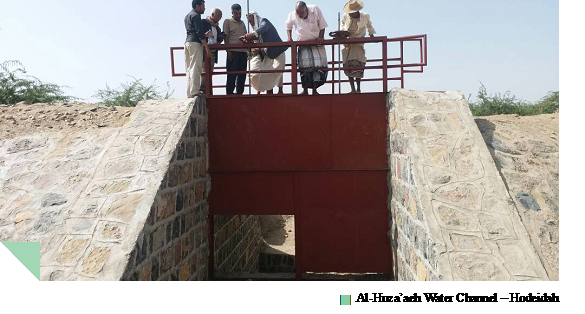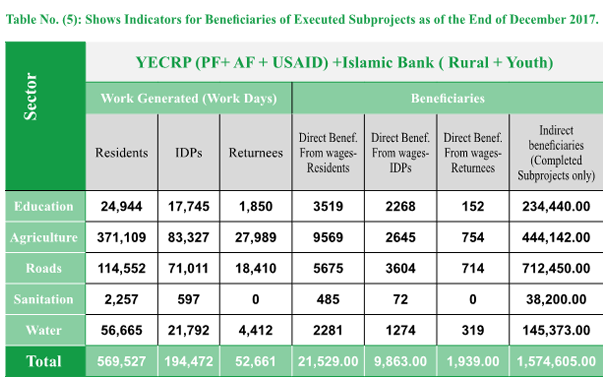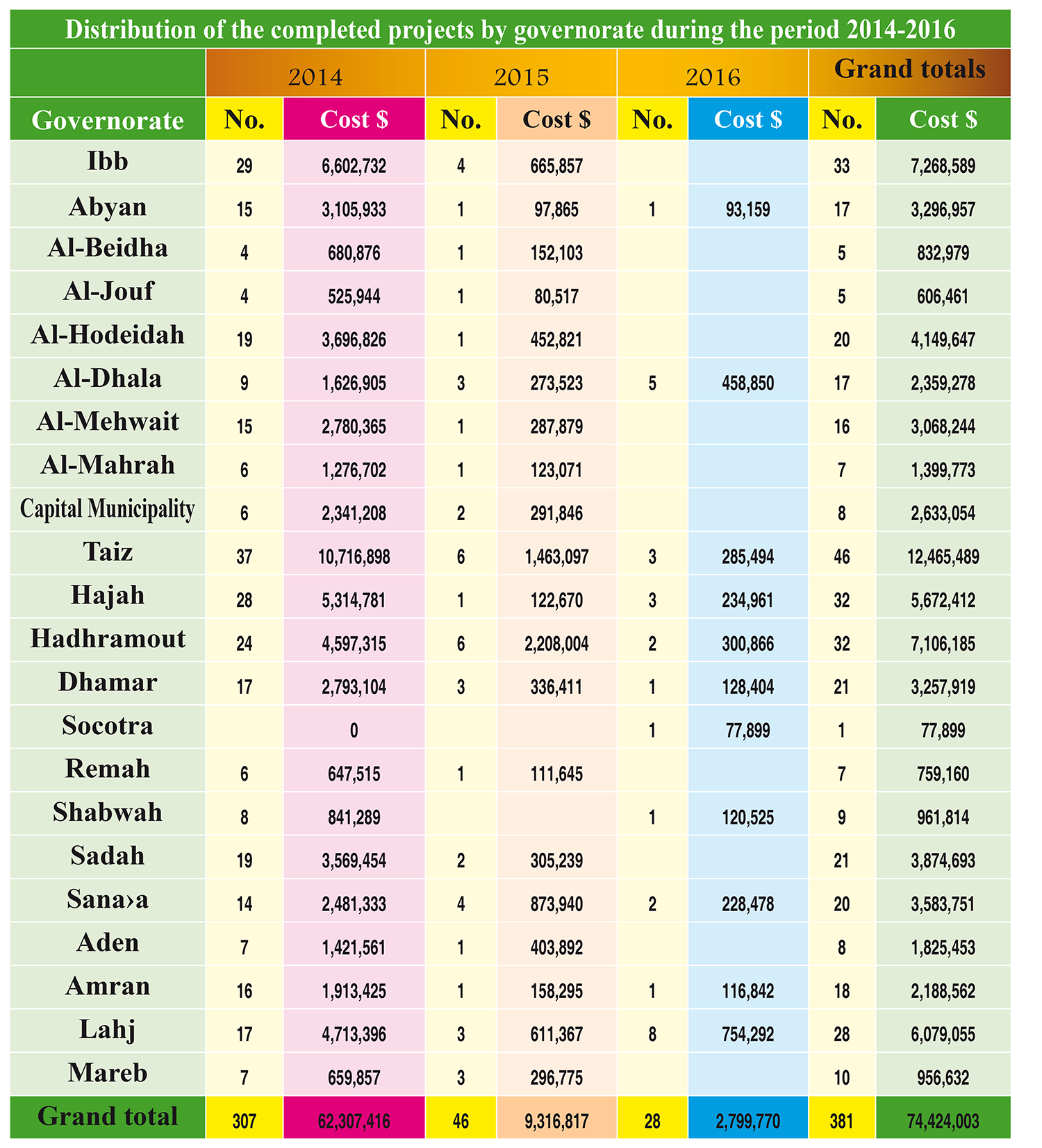PWP Saves the Small and Medium Contracting Sector from Going Bankrupt.
Since its inception, PWP has been working to qualify and build the capacity of local contractors in urban and rural areas alike. This effort has had a profound impact on the contracting and construction sector in Yemen. Now, hundreds of qualified and capable contractors exist and working in a multitude of projects all over the country.
PWP afforded work opportunities for 770 contractors who, due to the long stagnation as a result of the current circumstances in the country, had no work opportunities and who had been overwhelmed by the overheads (machinery / rents, etc.). This has spurred a high level of competition among contractors who reduced profit margins to lower their bids. On average 264 contractors participate in each announcement, indicating the immense need for work. To offset the low prices quoted by contractors, contracts are signed in US$ as a hedge against fluctuating exchange rates.
Additionally, the limited opportunities have forced contractors to take risks and work in areas of conflicts, and to a large degree, abide by hazards mitigation measure and a willingness to implement occupational health and safety requirements.
PWP also achieved success in the qualification and training of hundreds of young engineers on field supervision and follow-up of projects implementation. Its own staff, engineers, consultants, contractors have been highly trained and qualified side by side with NGO’s, and local communities. PWP organizes regular training and capacity building sessions in various governorates, focusing on capacity building of consultants and engineers, as well as contractors. Emphasis is on skills such as supervision of civil works, quality control, principles of environment impact assessments and applications, and improvement of work processes. PWP also contributed to the improvement of living condition by creating job opportunities for unemployed engineers, and generated work for contractors improving their financial situation.
Furthermore, 2,377 consultant engineers were hired under the YECRP only, mostly engineers who lacked any other work opportunity. 1,268 supervision consultants were contracted. Priority was given to residents of targeted areas where the subprojects would be implemented. This practice was helpful in the organization of the work during implementation of subprojects in the various areas of the country. Many of those contracted have the background and knowledge of the areas they work in - and these were mostly in remote areas. They are also familiar with the culture & traditions of their local area.
In addition, 1,268 more resident engineers are sub-contracted by contractors.
346 female engineers were also contracted for design & supervision.157 were contracted to work as female social consultants for field mobilization.
YECRP hence has had multiplying effects on revitalizing the construction industry, and a rippling effect on impacts of incomes gained - all which need to be maintained looking forward.
2017
-

During the period from January – December 2017, the total number of beneficiaries from the subprojects implemented by the PWP increased to 1.5 million people:

2016
-
The total number of beneficiaries of PWP projects during 2014-2016 has reached 1,907,298 beneficiaries so the overall number of beneficiaries since the commencement of PWP until the end of December 2016 has reached 18,522,428 beneficiaries in 21 provinces among 8 sectors in which PWP operates.




